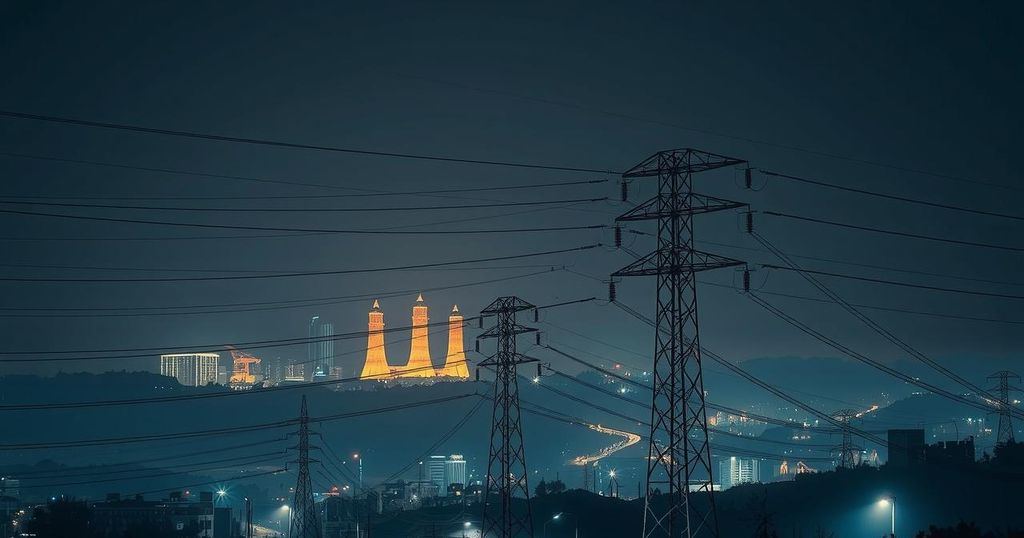Nigeria’s Power Crisis: A Struggle for Reliable Electricity

Nigeria faces a critical energy crisis, with prolonged power outages affecting daily life and celebrations. Despite being a oil-rich nation, approximately 70% of its 140 million people lack consistent electricity access. The situation is exacerbated by aging infrastructure and high costs of transitioning to renewable energy, such as solar power, compelling many to rely on petrol or diesel generators. Urgent reform is necessary to tackle energy poverty and foster economic growth.
In Lagos, intermittent power cuts are a common occurrence, affecting daily life and celebrations. For instance, last Christmas, a sudden power outage ruined groceries prepared for a family gathering, a stark reminder of the unreliability of the National Electric Power Authority (NEPA). This often leads to frustration among citizens, who have grown accustomed to such disruptions.
Nigeria, despite being a significant crude oil producer, struggles with energy shortages. Approximately 70% of its 140 million people lack reliable electricity, with only about half of the population connected to the national power grid. This system, primarily powered by gas and hydro, only generates about 12,522 megawatts, while the country needs at least 40,000 megawatts to meet demand.
The electricity crisis is attributed to several factors, including outdated infrastructure, insufficient grid capacity, and reliance on fossil fuels. Backup generators, commonly diesel or petrol-powered, are prevalent solutions. Notably, around 84% of urban homes and 86% of businesses rely on these generators, often running them to the point of breakdown.
During a visit to a tailor in Kwara, the struggle with power was evident. He utilized torchlight from phones due to prolonged outages and a malfunctioning generator. The high cost of switching to solar energy presents a significant barrier, as many, like the tailor, cannot afford the upfront investment needed for sustainable alternatives.
Although there are government initiatives for integrating solar energy, it constitutes less than 3% of Nigeria’s total electricity generation. For many Nigerians, financial constraints hinder the transition from fossil fuel dependence to renewable energy sources. Some companies offer payment plans, but most cannot benefit from these solutions. Urgent action is needed to combat widespread energy poverty, which impacts welfare and productivity in Nigeria.
Despite these challenges, personal initiatives continue as citizens find ways to adapt. The hope remains that improvements in power supply will eventually materialize, signaling better times ahead for families and businesses alike.
Nigeria’s energy crisis is paradoxical, as it possesses vast crude oil reserves yet suffers from severe electricity shortages. Power cuts are a daily struggle for many citizens, impacting everything from food preservation to business operations. With over 70% of the population lacking access to reliable electricity, the reliance on backup generators has surged, further complicating the energy landscape. Issues such as aging infrastructure and a lack of investment in renewable energy contribute to the ongoing power woes.
The challenges surrounding Nigeria’s power supply underscore the urgent need for comprehensive solutions to address energy poverty. While alternatives like solar energy present a pathway to sustainability, affordability and accessibility remain significant barriers. To enhance citizens’ quality of life and economic productivity, the nation must prioritize investments in modern energy infrastructure and renewable sources.
Original Source: www.context.news







